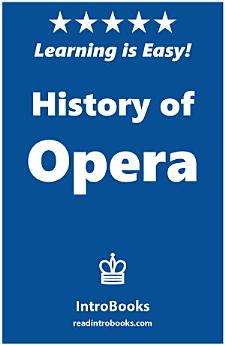History of Opera
এই ইবুকখনৰ বিষয়ে
With its roots in the Renaissance period, opera gradually spread across the world and today it has become a highly acclaimed form of art which is enjoyed by numerous people. There is no doubt that opera has gone through many changes in the course of time.
The singers and the quality of music, the orchestra the type of music that the audience enjoys and the voice of the singers continue to change in order to suit the demands of the audience. Opera has continued to develop by expanding the plots around which it was performed, the harmony and structure keeps changing as audiences change.
Earlier, the availability of resources were comparatively fewer too. This made operas simpler. Today, operas have access to technologies that can help them advance the manner in which music is used in the opera or the presentation of the entire opera. The effects created are very different from before as well.






